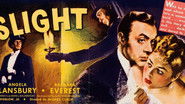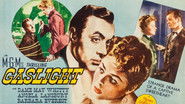Living the Wholesome Life
Every heard of the term "Gaslighting?" This film is where that term comes from. It means trying to get another person to believe what is not true - convincing them that their thoughts and feelings are not valid even when they are.Though I usually don't like murder mysteries, I do love this movie because I think it has great psychological value. I think it is one of the best films of showing the emotional abuse of gaslighting. I think this film shows us that we can't believe all people in all situations.
Rainey Dawn
This drama turned out to be a really good Gothic psychological thriller. It's worthwhile watching if you like these kinds of films. In short: It's about a man who murdered an opera singer over the rubies she is said to own, he searches for them but doesn't find them. Years later Gregory meets Paula, the niece of the woman he killed years ago, and she accidentally uncovers his real identity so he decides to drive her mad to have her locked away while looking for her aunt's rubies. Paula is just lucky that a snoop is interested in what goes on in number 12. The film is pretty dramatic, starts slow while it takes time for the tension to build. It's beautifully filmed, well acted out and a story of madness, murder and crime. 8/10
Ilpo Hirvonen
George Cukor's "Gaslight" (1944), based on a play by Patrick Hamilton, was the MGM studio's attempt to overwrite history and replace the British film adaption of the same name made four years earlier. They succeeded. Few have seen Dickinson's "Gaslight" (1940), and most remember Cukor's. And it is indeed quite a treat. It's simply a well- made piece of cinema. British suspense has often been well translated into Hollywood and Alfred Hitchcock is probably the best example of this popular phenomenon. Cukor's film's British nature is veritably strong since it takes place in Victorian England, it has British humor and its share of Hitchcockian elements. The basic set-up of the story is that a woman, Paula Alquist (Ingrid Bergman) has lost her closest and dearest relative, a famous opera singer, at a very young age and now, as an adult, returns to the very place of crime with her husband, Gregory Anton (Charles Boyer). The familiar environment brings back memories and mysteries involved with the death of Paula's aunt. The strangely secretive marriage of Paula and Gregory as well as their few public appearances draw the interest of Brian Cameron (Joseph Cotten), a former fan of Paula's aunt, who thinks that Paula might be in danger. Overall, the story is very simple. The classical narrative works extremely well with a tight structure supported by a conventional style. To some, the film might seem utterly predictable, but in a way that's the whole point, and this is yet another parallel to Hitchcock. For the essence of Hitchcockian suspense lies in build-up rather than surprise. The viewer knows the mystery of "Gaslight" but is nonetheless excited to see the development of its revelation to the characters. As many know, the English expression "gas-lighting" refers to mental abuse where information is distorted in such a way that the person who receives it is made to think that she has lost her mind. This supplies the story with its basic motif, the gaslight, which strongly belongs to its historical milieu and is, despite its seeming narrative significance, left ambiguous in deeper meaning. Given this set-up, it is easy to see how "Gaslight" is really a film about power and imprisonment. On a historical-social level, it can be seen as an ironic comment on marriage as a prison for women who have been sentenced to a lower social status in comparison to their husbands. (Interestingly, Robert Siodmak's "The Suspense" (1944) reveals a situation where murder is the only escape for the husband from his Victorian-age marriage). On a general level of psychology, the film might also be seen as a story about being imprisoned by one's past, whereas, on a more private level, it can be seen as a story about the tormenting experience of manipulation. There is one scene in particular that deserves attention. Gregory has reluctantly taken Paula to a social get-together where he is able to make Paula believe in her kleptomania as well as in the urgent need of keeping her locked up, away from the eyes of the public. The private anxiety of Paula as she is surrounded by a large number of people is pure Hitchcock, whose films often feature brilliant sequences where characters feel most alert in crowded spaces.Although the film is hardly an imitation, its subtle sense of film-noir, the powerful presence of Ingrid Bergman, and its story about a frail woman being terrorized by a deranged man draw immediate associations with Hitchcock. For one, Hitchcock made his share of such stories in the 1940's, most notably "Rebecca" (1940), "Suspicion" (1941), and "Shadow of a Doubt" (1943). The films also bear a similar "predictability". If Stanley Donen's "Charade" (1963) is the best pastiche of the later Hitchcock style, "Gaslight" is a wonderful reflection of Hitchcock's style in the 1940's. Overall, and despite these parallels, Cukor's narrative in its classical nature is quite different from Hitchcock's perpetual desire to regenerate cinematic narrative and stands strongly on its own. The film is very worth seeing simply for the divine pleasure of watching the story unfold in a tight, precisely considered structure, making one yearn for Hollywood in the 1940's.
grantss
Lacks mystery and intrigue - quite predictable.A young woman, Paula Alquist (played by Ingrid Bergman) leaves her home in England for Italy, for singing lessons. There she meets and falls in love with a pianist, Gregory Anton (played by Charles Boyer). They marry and move back to London, to live in the house Paula's aunt was murdered in, 10 years earlier. However, Gregory's intentions toward Paula aren't entirely romantic, or benevolent...For a movie with such sinister plots involved, this movie is quite predictable. You can see all the links and plans involving Gregory in the first 40 minutes or so. And some of his plans are just plain lame (the watch at the concert...). Good performances from Bergman and Boyer plus Joseph Cotten and Dame May Witty. 18-year old Angela Lansbury made her debut in this movie and puts in a solid performance. The minor performances can be quite laughable though - the risk of filming an English setting in the US (and you can thank WW2 for that). Best example of this is the scene with a cop whose accent frequently veers violently between English Cockney and southern-US in mid-sentence! Unintentionally funny.Ultimately a mediocre story, with some solid performances from the leads. Had heaps of potential, but much of this was squandered.











